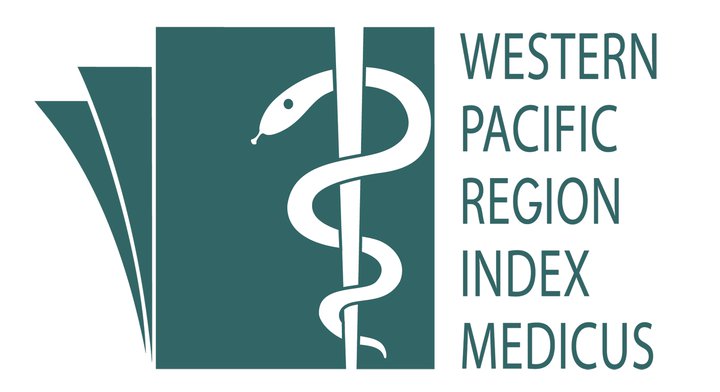Coping Strategies in Children of Parents Deceased from Cancer and Children of Parents Healed from Cancer
Abstract
This study aimed to compare coping strategies in children of parents deceased from cancer and children of parents healed from cancer in the city of Shiraz, Iran. One-hundred and fifteen people [58 children of parents healed from cancer and 57 children of parents deceased from cancer] were recruited in this study via a convenience sampling method. Coping Inventory for Stressful Situations was used to measure different types of coping strategies [task-oriented coping strategy, emotion-oriented coping strategy, and avoidance coping strategy]. The results showed that the children of parents healed from cancer used task-oriented coping strategy significantly more than children of parents deceased from cancer. Moreover, the results showed that the use of emotion-oriented coping strategy in children of parents deceased from cancer was significantly more than children of parents healed from cancer. No significant difference was observed between the two groups in the use of avoidance coping. This study highlights the importance of coping strategies in families with a cancer parent which demand the importance of teaching appropriate coping strategies in order to reduce the adverse consequence of cancer in the family.
References
Goli F, Scheidt CE, Gholamrezaei A, Farzanegan M. The role of locus of control and attributional style in coping strategies and quality of life among Iranian breast cancer and colorectal cancer patients: a pilot study. International Journal of Body, Mind and Culture. 2014;1[1]:65-72.
Akbari H, Akbari ME. The comparison of three components of breast cancer in females with cancer and healthy ones: coping styles, psychological capital, and patience. Multidisciplinary Cancer Investigation. 2018 Jul 10;2[3]:23-9.
Weaver KE, Rowland JH, Alfano CM, McNeel TS. Parental cancer and the family: a populationâ€based estimate of the number of US cancer survivors residing with their minor children. Cancer. 2010 Sep 15;116[18]:4395-401.
Roesch SC, Adams L, Hines A, Palmores A, Vyas P, Tran C, Pekin S, Vaughn AA. Coping with prostate cancer: a meta-analytic review. Journal of behavioral medicine. 2005 Jun 1;28[3]:281-93.
Welch AS, Wadsworth ME, Compas BE. Adjustment of children and adolescents to parental cancer: Parents' and children's perspectives. Cancer: Interdisciplinary International Journal of the American Cancer Society. 1996 Apr 1;77[7]:1409-18.
Li C, Liu Q, Hu T, Jin X. Adapting the short form of the Coping Inventory for Stressful Situations into Chinese. Neuropsychiatric disease and treatment. 2017; 13:1669.
de Wit J, Bakker LA, van Groenestijn AC, Baardman JF, van den Berg LH, Visser-Meily JM, SchrÖder CD. Psychological distress and coping styles of caregivers of patients with amyotrophic lateral sclerosis: a longitudinal study. Amyotrophic Lateral Sclerosis and Frontotemporal Degeneration. 2019 Apr 3;20[3-4]:235-41.
Imran S, MacBeth A, Quayle E, Chan SW. Adaptation of the Coping Inventory for Stressful Situations [Short Form] for Pakistani Adolescents. J Psychol Psychother. 2020;10[375]:2161-0487.
Endler NS, Parker JD. Assessment of multidimensional coping: Task, emotion, and avoidance strategies. Psychological assessment. 1994 Mar;6[1]:50.
Endler NS, Parker JD. Assessment of multidimensional coping: Task, emotion, and avoidance strategies. Psychological assessment. 1994 Mar;6[1]:50.
Cohan SL, Jang KL, Stein MB. Confirmatory factor analysis of a short form of the coping inventory for stressful situations. Journal of clinical psychology. 2006 Mar;62[3]:273-83.
Calsbeek H, Rijken M, Henegouwen GP, Dekker J. Factor structure of the Coping Inventory for Stressful Situations [CISS-21] in adolescents and young adults with chronic digestive disorders. The Social Position of Adolescents and Young Adults with Chronic Digestive Disorders. Utrecht: NIVEL. 2003.
Boysan M. Validity of the coping inventory for stressful situations-short form [CISS-21] in a non-clinical Turkish sample. Dusunen Adam The Journal of Psychiatry and Neurological Sciences. 2012;25[2]:101.
Siciliano M, Santangelo G, Trojsi F, Di Somma C, Patrone M, Femiano C, Monsurrò MR, Trojano L, Tedeschi G. Coping strategies and psychological distress in caregivers of patients with Amyotrophic Lateral Sclerosis [ALS]. Amyotrophic Lateral Sclerosis and Frontotemporal Degeneration. 2017 Jul 3;18[5-6]:367-77.
Kershaw T, Northouse L, Kritpracha C, Schafenacker A, Mood D. Coping strategies and quality of life in women with advanced breast cancer and their family caregivers. Psychology & Health. 2004 Apr 1;19[2]:139-55.
Rantanen M, Mauno S, Kinnunen U, Rantanen J. Do individual coping strategies help or harm in the work–family conflict situation? Examining coping as a moderator between work–family conflict and well-being. International Journal of Stress Management. 2011 Feb;18[1]:24.
Hanks RA, Rapport LJ, Vangel S. Caregiving appraisal after traumatic brain injury: The effects of functional status, coping style, social support and family functioning. NeuroRehabilitation. 2007 Jan 1;22[1]:43-52.
Lindqvist R, Carlsson M, Sjödén PO. Coping strategies and healthâ€related quality of life among spouses of continuous ambulatory peritoneal dialysis, haemodialysis, and transplant patients. Journal of advanced nursing. 2000 Jun;31[6]:1398-408.
Lilly MM, Graham-Bermann SA. Intimate partner violence and PTSD: The moderating role of emotion-focused coping. Violence and victims. 2010 Oct 1;25[5]:604-16.
Hack TF, Degner LF. Coping responses following breast cancer diagnosis predict psychological adjustment three years later. Psychoâ€Oncology: Journal of the Psychological, Social and Behavioral Dimensions of Cancer. 2004 Apr;13[4]:235-47.
Ptacek JT, Pierce GR, Ptacek JJ, Nogel C. Stress and coping processes in men with prostate cancer: the divergent views of husbands and wives. Journal of Social and Clinical Psychology. 1999 Sep;18[3]:299-324.
Published
How to Cite
Issue
Section
License
IJPHR applies the Creative Commons Attribution (CC BY) license to articles and other works we publish. If you submit your paper for publication by IJPHR, you agree to have the CC BY license applied to your work. Under this Open Access license, you as the author agree that anyone can reuse your article in whole or part for any purpose, for free, even for commercial purposes. Anyone may copy, distribute, or reuse the content as long as the author and original source are properly cited. This facilitates freedom in re-use and also ensures that IJPHR content can be mined without barriers for the needs of research.






